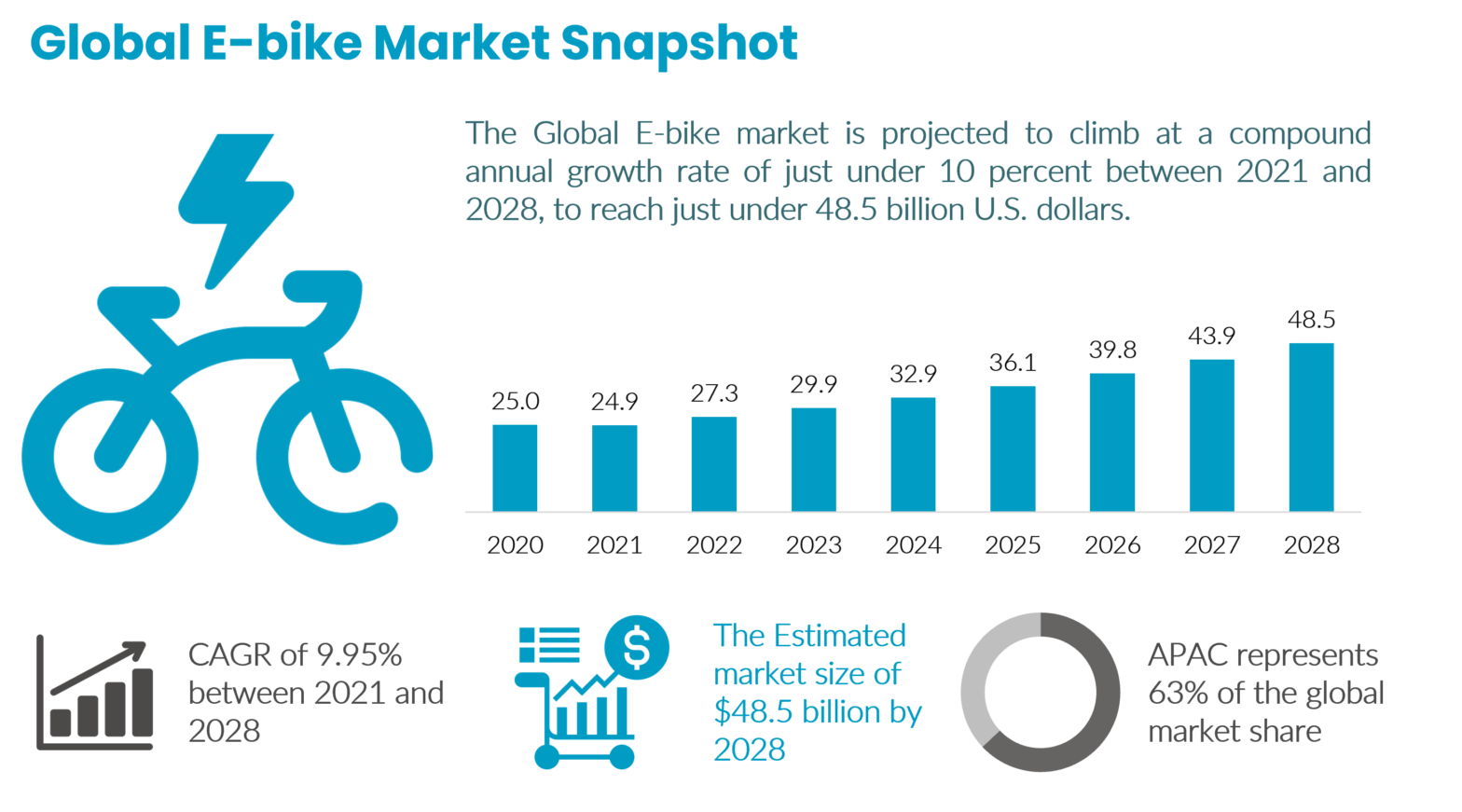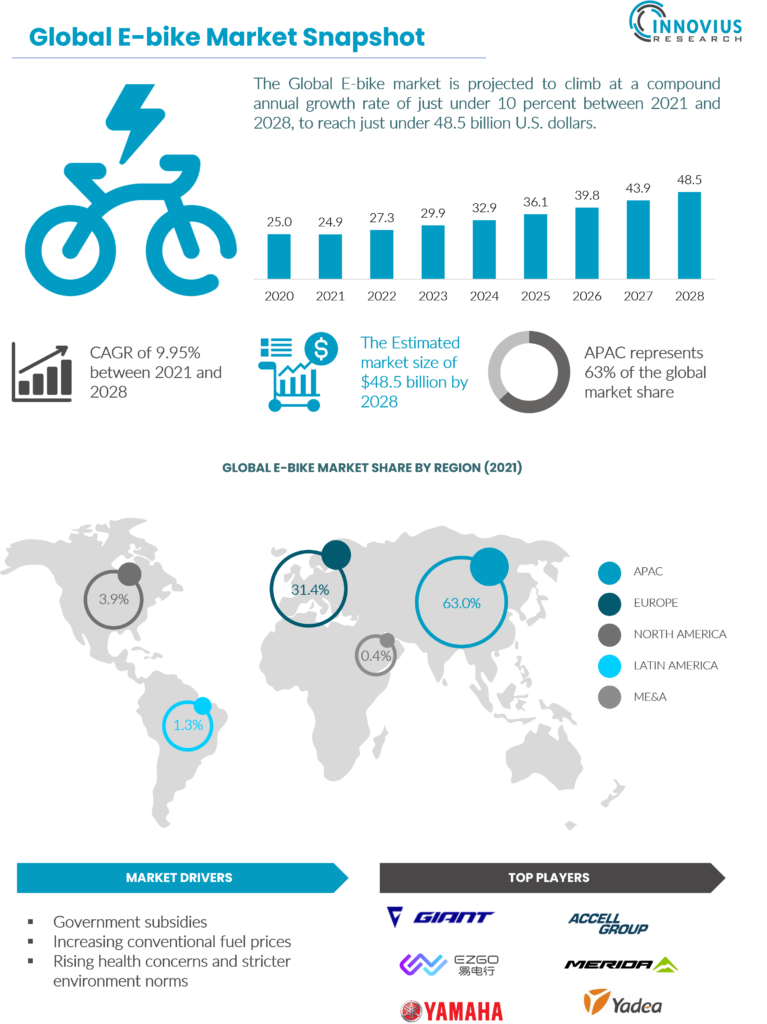
Global E-bike Market Snapshot
Introduction
A bicycle with an integrated electric motor driving mechanism and battery that provides power for causing or helping propulsion is known as an electric bike. E-bikes ranging from a small motor to help the rider’s pedal power to more powerful e-bikes that give energy to completely drive the bike through throttle are all available worldwide. When compared to traditional bicycles, e-bikes allow riders to pedal longer and more often. It is also beneficial to individuals with restricted mobility and provides a less expensive alternative to driving.

Global E-bike Market Overview
In 2020, the global e-bike market was valued at $25 billion, and the market is expected to grow and reach $48.5 billion by 2028, at a CAGR of 9.95% during the forecasted period 2021-2028.
Out of the total global e-bike market, the Asia-Pacific region held the largest market share of around 63%, followed by Europe at 31.4%, and North America at 3.9%.
Governments throughout the world are taking steps to minimize carbon footprints by promoting the use of electric bikes, electric automobiles, and bicycles, as people become more conscious of the dangers of driving vehicles that depend on fossil fuels. Furthermore, governments are developing bicycle-friendly roadways, which encourage people to use bicycles as a primary form of transportation. For example, in June 2019, the Indian government announced a proposal to reduce the goods and services tax (GST) on e-cars from 12% to 5% in order to accelerate the adoption of electric vehicles.
Furthermore, infrastructure facilities such as guarded bicycle parking facilities, the construction of more bicycle (express) routes, and the establishment of battery charging stations by governments in many countries significantly increase user adoption of electric bikes, thereby propelling the E-bikes market’s growth.
The rise in worldwide fuel prices, rising pollution, and traffic congestion, particularly in metropolitan areas, have boosted the appeal of electric bikes on every continent. The higher operating and maintenance expenses of gasoline vehicles cause a shift in preference for electric bikes in daily commuting, propelling the E-bikes market growth.
E-bikes are less costly than vehicles, do not need a license, and can be utilized on existing bike paths. Sanyo (Japan), for example, created two solar parking lots in Tokyo where about 100 electric bicycles may be recharged using solar panels. Even the existing companies’ continual technical improvements in e-bikes are fueling market expansion.
Data Sources: Statista, P&S Intelligence, IMARC, and others
To know more about the E-Bike market in detail please Contact Now
Read more Market Reports and view Infographics.

